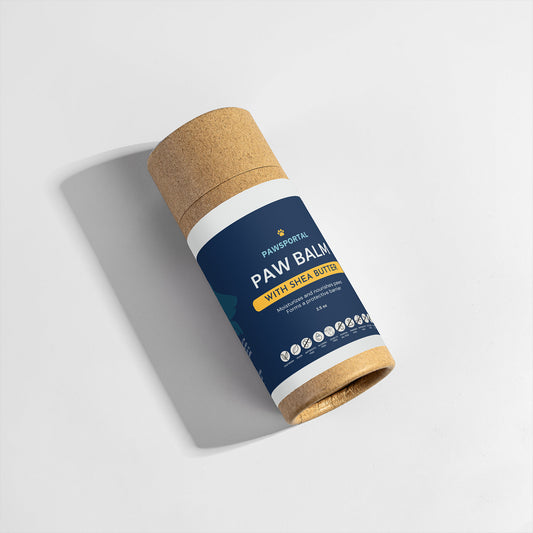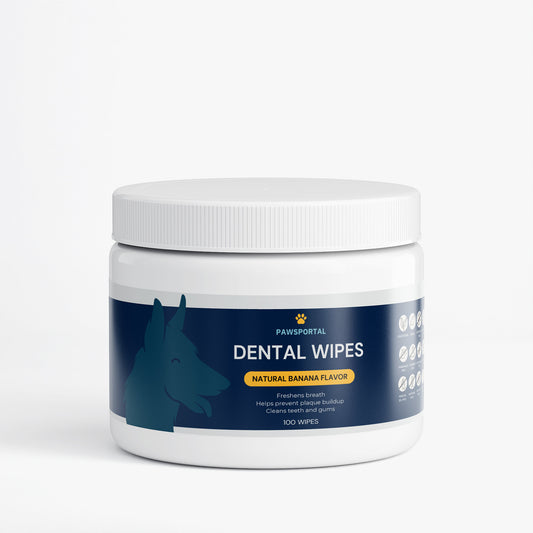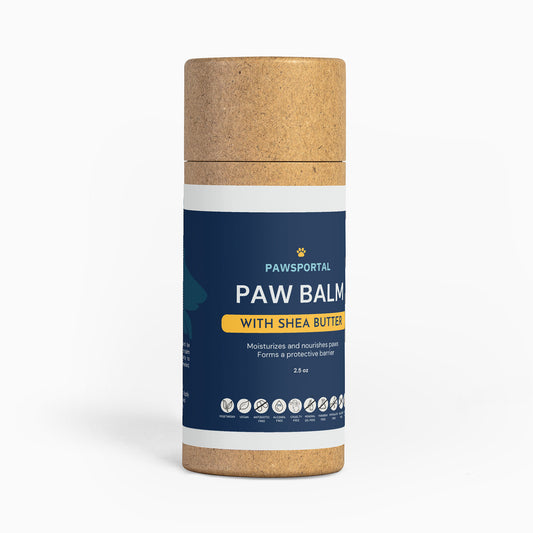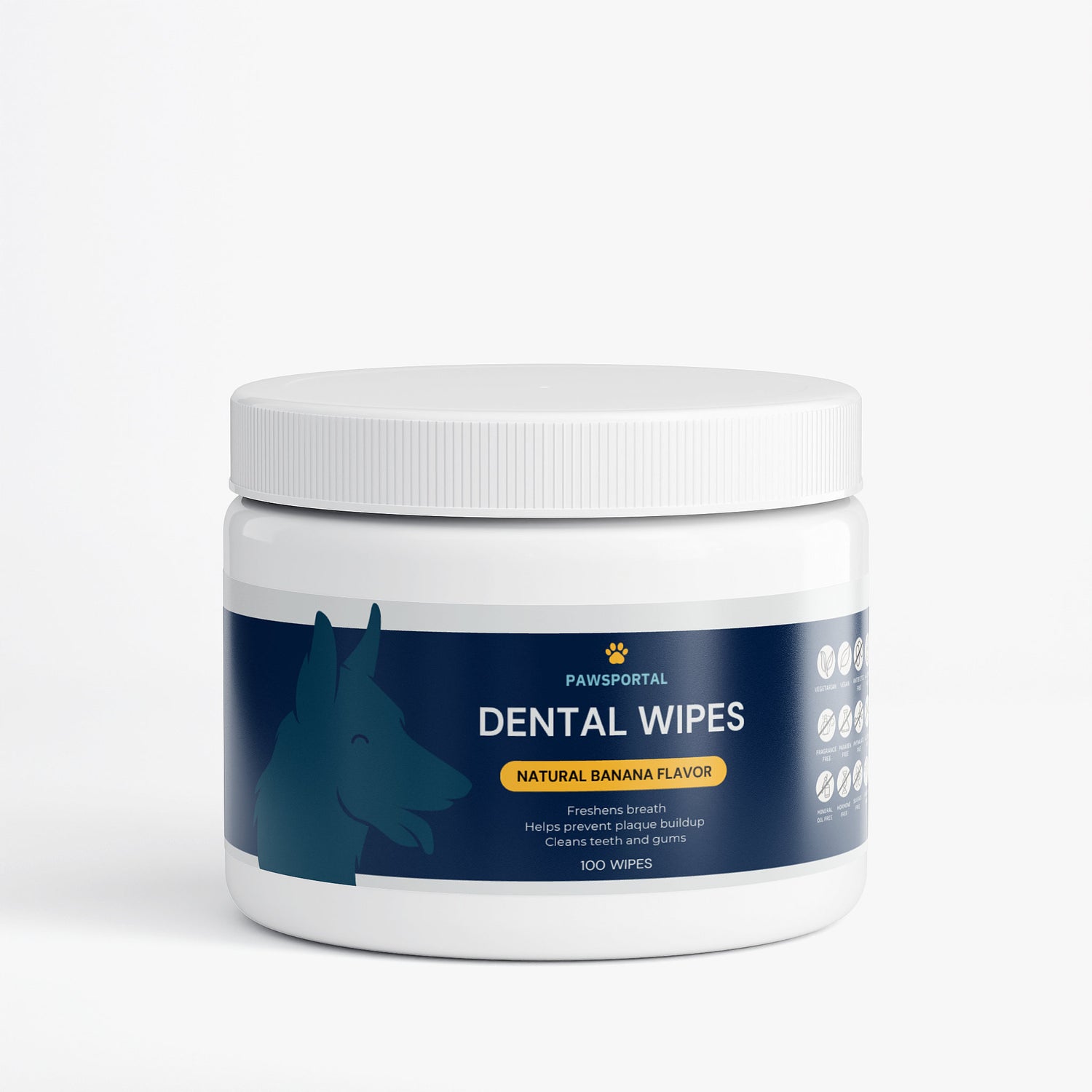
The Ultimate Guide to Dog Food for Sensitive Stomachs: Managing Your Dog's Digestive Health
Share
When your beloved furry companion shows signs of digestive distress, it can be distressing for both of you. Dogs with sensitive stomachs require special care, particularly regarding their diet. This comprehensive guide will help you navigate the complex world of canine digestive issues, identify symptoms, choose appropriate foods, and implement strategies to support your dog's digestive health.
_____________________________________________________________________________________________

Understanding Canine Digestive Sensitivities
Digestive issues are remarkably common in dogs. In fact, veterinarians confirm that "it is almost a guarantee that your dog will experience digestive issues at some point in time". These problems can range from mild stomach upset to more serious conditions requiring veterinary intervention.
A sensitive stomach in dogs isn't a single diagnosis but rather a collection of symptoms indicating underlying issues. These digestive sensitivities can stem from various causes, including food allergies, dietary indiscretion, sudden food changes, stress, infections, or even breed predisposition. Some breeds, including German Shepherds, Great Danes, Golden Retrievers, and Collies, are genetically more prone to particular digestive problems.
_____________________________________________________________________________________________
Recognizing the Signs of Digestive Distress
Identifying the symptoms of digestive issues is crucial for early intervention. Common signs that your dog may be experiencing a sensitive stomach include:
Primary Symptoms:
- Diarrhea or loose stools (potentially containing mucus)
- Vomiting or regurgitation
- Excessive flatulence (gas)
- Loss of appetite
- Abdominal pain or discomfort (evidenced by panting, hiding, shaking, or vocalization)
- Loud stomach noises (borborygmi)
Secondary Symptoms:
- Lethargy or decreased energy levels
- Weight loss
- Dull coat or poor overall appearance
- Stretching repeatedly (may indicate abdominal discomfort)
If your dog exhibits any of these symptoms persistently or severely, it's important to consult with your veterinarian. While occasional mild symptoms might be manageable at home, frequent or severe digestive issues could indicate more serious underlying conditions that require professional attention.
_____________________________________________________________________________________________
When to Consult a Veterinarian
While some mild digestive upsets can be managed at home, certain situations warrant immediate veterinary attention:
- Diarrhea lasting more than 24 hours
- Persistent or frequent vomiting
- Signs of lethargy or pain
- Refusal to eat or drink
- Blood in vomit or stool
- Suspected ingestion of toxic substances or foreign objects
A veterinary consultation is crucial because symptoms of sensitive stomachs can sometimes indicate other medical conditions, such as "endocrine diseases, autoimmune conditions, or exocrine pancreatic insufficiency, where the dog lacks essential digestive enzymes".
Your veterinarian will likely perform a comprehensive assessment of your dog's health and diet history. Be prepared to provide detailed information about all treats, chews, and supplements your dog receives. Based on this evaluation, your vet may recommend:
- A prescription dog food
- A 4-12 week food trial to identify sensitivities
- Specific ingredients to avoid
- Additional supportive products like probiotic
_____________________________________________________________________________________________
Choosing the Best Dog Food for Sensitive Stomachs
Selecting the right dog food is perhaps the most crucial factor in managing your dog's sensitive stomach. The ideal food should be highly digestible, contain high-quality ingredients, and avoid common allergens or irritants.
_____________________________________________________________________________________________
Key Ingredients to Look For
When selecting sensitive stomach dog food, prioritize these beneficial components:
Easily Digestible Proteins: High-quality protein sources like chicken, turkey, and fish are generally gentler on sensitive stomachs. Some dogs may also do well with novel protein sources like eggs or venison if they have allergies to common proteins.
Prebiotics and Probiotics: These promote healthy gut bacteria balance, supporting optimal digestion. Probiotics like Lactobacillus acidophilus, Bifidobacterium animalis, and Lactobacillus reuteri can help maintain a balanced gut microbiome.
Dietary Fibers: Sources such as sweet potatoes and pumpkins support digestive health by regulating bowel movements and feeding beneficial gut bacteria.
Omega Fatty Acids: These help reduce inflammation in the digestive tract and support overall gut health.
_____________________________________________________________________________________________
Ingredients to Avoid
Certain ingredients commonly trigger digestive issues in sensitive dogs:
- Low-quality fillers and by-products
- Artificial colors, flavors, and preservatives
- Common allergens (depending on the individual dog) such as beef, dairy, wheat, or soy
- Excessive fat content, which can be harder to digest
- Table scraps and human food, which can disrupt a dog's digestive system
_____________________________________________________________________________________________

Top Recommended Dog Foods for Sensitive Stomachs
Based on veterinary recommendations and quality ingredients, these dog foods stand out for dogs with sensitive stomachs:
- Hill's Science Diet Sensitive Stomach & Skin: Formulated with prebiotic fiber to support gut bacteria and balanced microbiome. Contains vitamin E and Omega-6 fatty acids for skin and coat health.
- Purina Pro Plan Sensitive Skin & Stomach: Features real meat as the first ingredient and includes prebiotic fiber for gut health.
- Diamond Care Sensitive Stomach Formula: A limited-ingredient diet with easily digestible egg and potato protein, plus probiotics native to the canine GI tract.
- Open Farm Wild-Caught Salmon & Ancient Grains: Combines high-quality protein with ancient grains for gentle digestion.
- Royal Canin Veterinary Diet Gastrointestinal: Specifically designed for dogs with gastrointestinal issues, featuring highly digestible proteins and balanced fibers.
- Spot & Tango's UnKibble: Uses fresh, whole ingredients in simple recipes, making it excellent for dogs with tummy troubles.
_____________________________________________________________________________________________
Managing Your Dog's Sensitive Stomach: Beyond Diet
While choosing the right food is essential, several other strategies can help manage your dog's sensitive stomach:
Feeding Practices
How you feed your dog can be just as important as what you feed them:
- Slow down mealtimes: Dogs that eat too quickly can ingest air, causing gas and discomfort. Consider using slow-feeder bowls or dividing meals into smaller portions throughout the day.
- Maintain consistency: Any sudden change in nutrition can irritate a dog's digestive system. When switching foods, do so gradually by mixing increasing proportions of the new food with the old over 7-10 days.
- Monitor portions: Overfeeding can strain the digestive system. Follow feeding guidelines based on your dog's weight and adjust as needed.
Supportive Supplements
Certain supplements can provide additional support for dogs with sensitive stomachs:
- Probiotics: Veterinary-approved probiotics like Purina's FortiFlora can help rebalance gut bacteria.
- Digestive enzymes: These can aid in breaking down food and improving nutrient absorption for dogs that may have enzyme deficiencies.
- Fiber supplements: For dogs needing additional fiber to regulate bowel movements, supplements containing psyllium husk or pumpkin can be beneficial.
Home Management Strategies
For occasional digestive upsets, these strategies may help:
- Brief fasting: Withholding food (but not water) for 12-24 hours can give your dog's digestive system time to rest and recover from mild upsets.
- Bland diet: Following fasting, introduce easily digestible foods like boiled chicken and white rice before gradually transitioning back to regular food.
- Hydration: Ensure your dog always has access to fresh water, as proper hydration is essential for healthy digestion.
_____________________________________________________________________________________________

Preventing Digestive Issues
Prevention is always better than treatment. Consider these long-term strategies to support your dog's digestive health:
- Regular veterinary check-ups: Annual exams can catch potential issues before they become serious problems.
- Parasite prevention: Regular deworming and parasite control can prevent many digestive issues caused by intestinal parasites.
- Stress management: Since stress can trigger digestive upset in dogs, create a calm environment and routine for your pet.
- Quality diet: Consistently feeding high-quality food appropriate for your dog's specific needs is the foundation of digestive health.
- Avoid dietary indiscretion: Keep trash secured and monitor what your dog has access to during walks and in your yard.
_____________________________________________________________________________________________
When to Seek Additional Support
If your dog's digestive issues persist despite dietary changes and home management strategies, consider seeking specialized care:
- Veterinary nutritionist consultation: These specialists can create custom diet plans for dogs with complex digestive issues.
- Comprehensive diagnostic testing: Your vet might recommend additional tests such as abdominal ultrasound, endoscopy, or specific blood tests to identify underlying causes.
- Medication: In some cases, prescription medications may be necessary to manage chronic digestive conditions.
_______________________________________________________________________________________________
Conclusion
Managing a dog with a sensitive stomach requires patience, attention to detail, and a willingness to adapt. By carefully selecting appropriate foods, implementing supportive feeding practices, and working closely with your veterinarian, you can significantly improve your dog's digestive health and quality of life.
Remember that each dog is unique, and what works for one may not work for another. The journey to finding the perfect solution for your dog's sensitive stomach may take time, but the reward of seeing your furry friend comfortable, healthy, and thriving makes every effort worthwhile.
At Pawsportal, we understand the challenges of caring for dogs with sensitive stomachs and offer a selection of premium foods specifically formulated to address digestive sensitivities. Visit www.pawsportal.org to explore our range of digestive-friendly dog foods and supplements, and remember that investing in your dog's digestive health is investing in their overall wellbeing and happiness.
______________________________________________________________________________________________
RELATED ARTICLES
- https://thevets.com/resources/pet-health-care/digestive-issues-in-dogs/
- https://www.hillspet.ca/en-ca/dog-care/healthcare/dog-gastrointestinal-and-digestive-problems
- https://www.splootvets.com/post/dog-food-sensitive-stomachs
- https://www.pethonesty.com/blogs/blog/supporting-a-pet-with-a-sensitive-stomach
- https://vetslovepets.com.au/blogs/dog/dog-digestive-health-tips
- https://smallbusiness.missouri.edu/ultimate-guide-7-ways-to-soothe-your-dogs-tummy-now
- https://snoutsnstouts.com/dog-safety/sensitive-stomach-dog-food/
- https://www.petvalu.ca/product/diamond-care-sensitive-stomach-formula-adult-dog-food/FCM01338
- https://jiminys.com/blogs/benefits/the-ultimate-guide-to-choosing-dog-food-for-sensitive-stomachs
- https://www.hillspet.ca/en-ca/dog-care/routine-care/caring-for-dog-with-sensitive-stomach
- https://www.renspets.com/products/science-diet-adult-sensitive-stomach-skin
- https://www.forbes.com/sites/forbes-personal-shopper/article/best-dog-foods-for-sensitive-stomachs/















